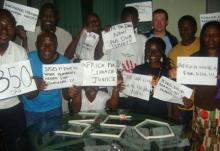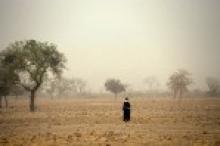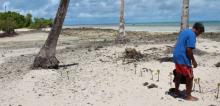Dr. Johnson Nkem discusses other possible development trajectories for Africa in response to climate change. This blog is part of a series of reflections in response to the upcoming 'Our Common Future Under Climate Change' conference in Paris.
Public dialogues across different stakeholder groups in Africa (such as civil society, youth groups), are generating deep reflections on what awaits the region, following a post Kyoto climate agreement in Paris later this year. At a side event organised by the African Climate Policy Centre (ACPC) during the 2015 AU-ECA Conference of Ministers of Finance and Economic Planning in Addis Ababa, Ethiopia, there was an interesting discussion around this topic. Panelists and participants explored the importance of alternative development scenarios and perspectives needed by Africa, both intellectually and practically, to safeguard its interests. After all, there is no one road to being ‘climate smart’ in a development process. Read more...










